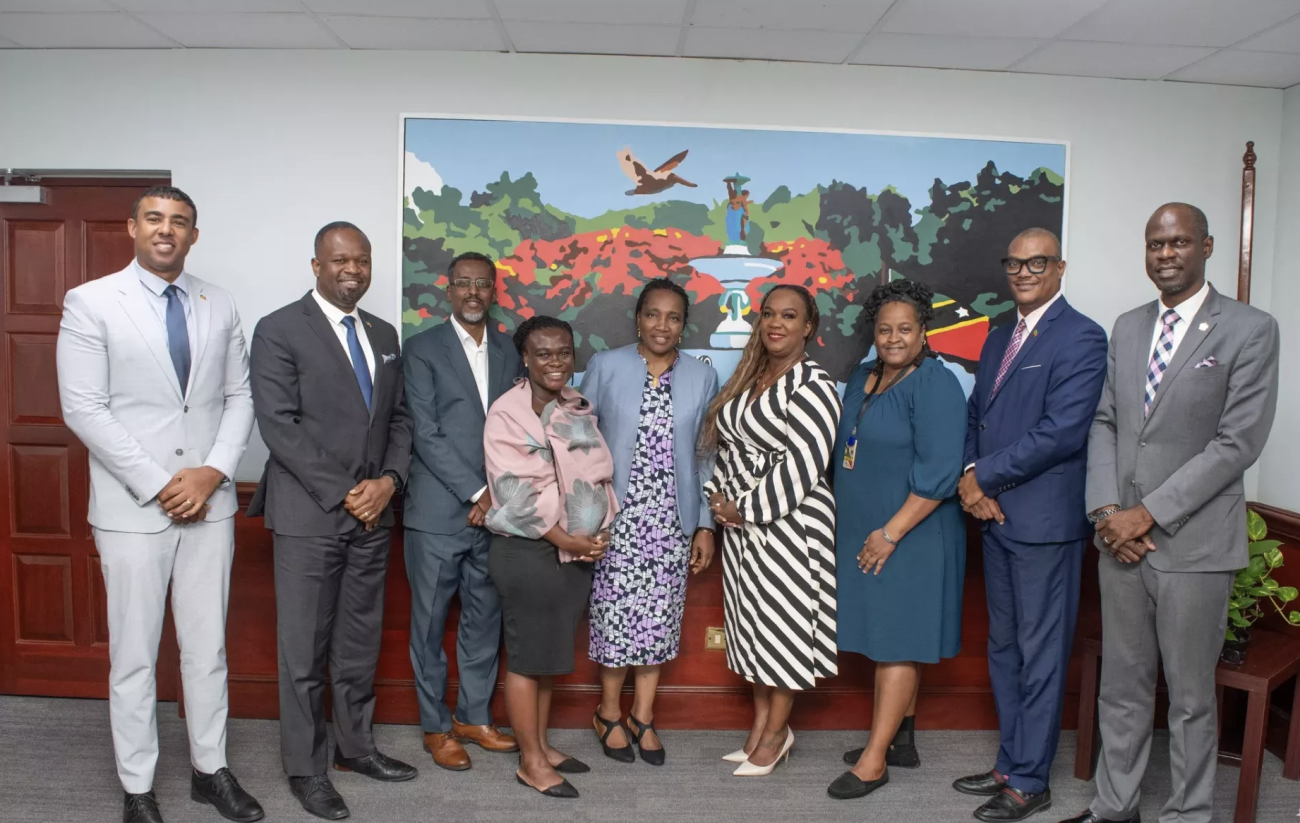BASSETERRE - The Cabinet of Saint Kitts and Nevis has reviewed a new National Social Protection Policy and Action Plan (2025–2030) that, if adopted, would strengthen national resilience and significantly reduce inequality. Developed with technical support from UNICEF, the framework addresses growing risks to children and families, including those posed by climate change, economic shocks, and future pandemics.
Led by Acting Prime Minister, the Honourable Dr Geoffrey Hanley, the Cabinet met on 7 July 2025 to consider the draft policy during high-level deliberations on national development priorities. The presentation was delivered by UNICEF Representative Eastern Caribbean Abdulkadir Musse and Chief of Social Policy Maryam Abdu, alongside Permanent Secretary in the Ministry of Social Development and Gender Affairs, Azilla Clarke.
The proposed policy outlines a comprehensive response to poverty, vulnerability, and social exclusion, with a strong emphasis on protecting children, persons with disabilities, and the elderly. Its four strategic pillars aim to reduce inequality, build crisis resilience, promote social inclusion through better-targeted support, and strengthen institutional systems for planning and investment.
What sets the policy apart is its shock-responsive design, which ensures that national systems can scale up quickly in response to emergencies such as natural disasters or economic downturns, while also maintaining long-term developmental goals. From emergency cash transfers and decentralised service delivery to social registries and early warning linkages, the framework embeds the flexibility needed to protect lives and livelihoods.
“This is a transformative step toward building a future where social protection does not just cushion families from hardship — it enables them to recover, grow, and thrive,” said Musse. “We commend the Government of Saint Kitts and Nevis for prioritising children and vulnerable groups in its national development agenda,” the UNICEF Representative added.
UNICEF’s support reflects its global commitment to strengthening child-sensitive social protection systems — with a particular focus on crisis preparedness, inclusive service delivery, and coordination between social and humanitarian actors. The organisation continues to advocate for increased investment, data-driven policymaking, and integrated approaches that address both immediate and long-term needs.
The review of the draft policy by Cabinet is a significant step toward its formal adoption. Once implemented, it will serve as a cornerstone for Saint Kitts and Nevis’ ambitions to reduce poverty, close equity gaps, and build a more inclusive and resilient society.




